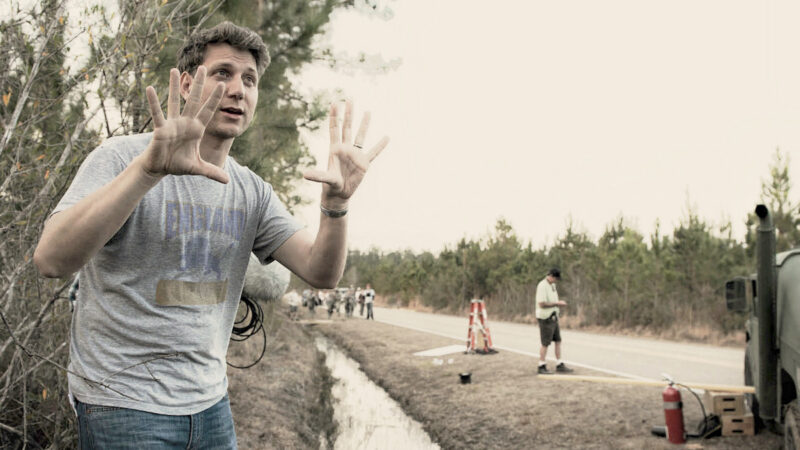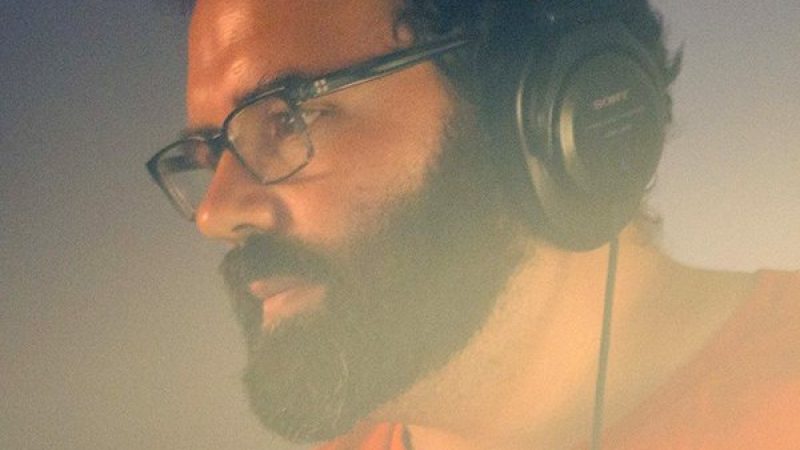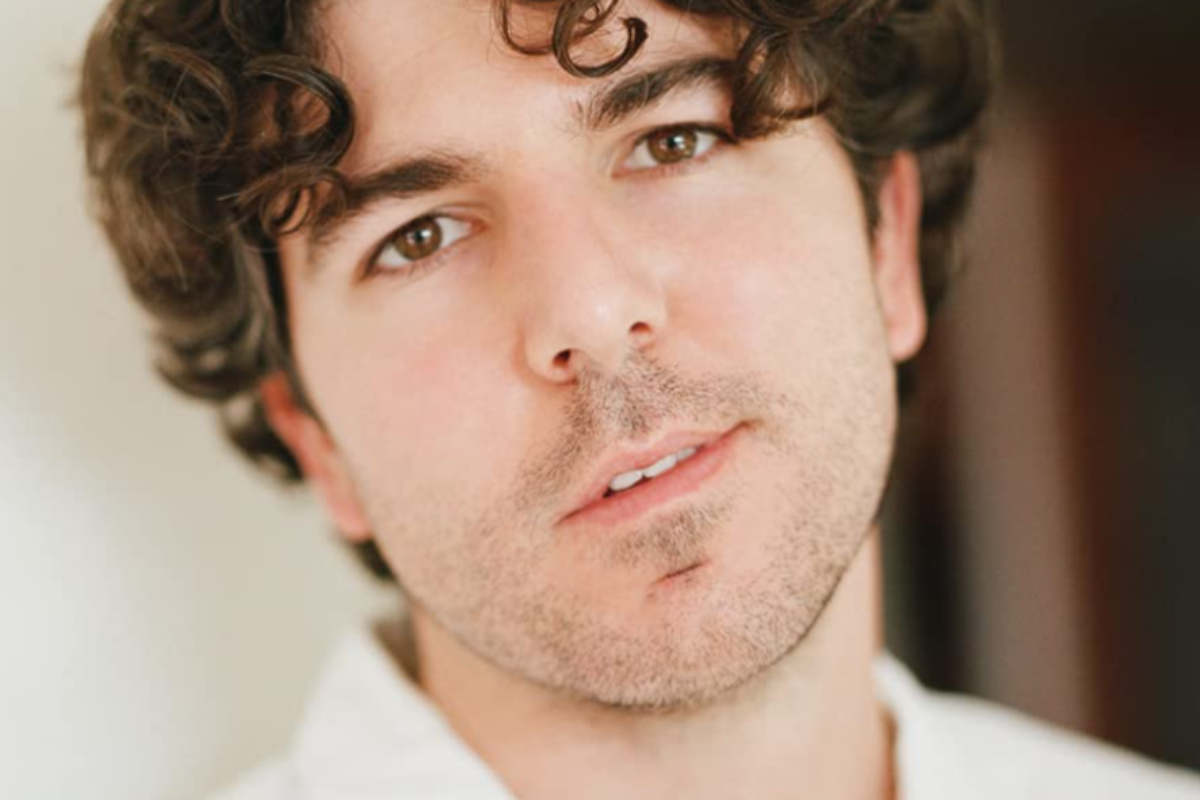
Arthur De Larroche was born in Paris, France yet lived in the Caribbean, where he grew up. With not a lot to do on small islands, he would wrangle his family into making 90-minute home movies that got distribution in the Southern US. Those were his teenage years, somewhere between the ages of 15-18. After that, he left to Hollywood, Los Angeles to make more movies, like his recent effort, Clairevoyant. And Voila! We have him today! Hello Arthur!
indieactivity: How would you describe your work as a director?
Arthur De Larroche (ADL): Functional.
How did you get into directing?
Arthur De Larroche (ADL): I remember asking my dad to hold a camcorder while I smashed my toy dinosaurs together. Told him how close to get and where to stand. As a teenager, I wanted to act but there was no one around to direct me. So, I thought “how hard could it be?” Turned out to be hard but not that hard.
How do you choose a project to direct?
Arthur De Larroche (ADL): Well, so far, my choice has come up to whatever we can actually make by ourselves with no resources. Bob Evans isn’t going to ride in on a wave of cocaine and greenlight my next mid-budget original IP anymore and American Zoetrope’s dead.
Do you often take courses to increase your craft?
Arthur De Larroche (ADL): I’ve taken many but I recommend none. I highly recommend consuming as many YouTube video essays as possible. Eventually, the algorithm will be a better teacher than nearly all the courses you can take. If you find a good course, let me know!
Watch Official Clairevoyant Trailer Directed by Arthur De Larroche and Micaela Wittman
What books do you read?
Arthur De Larroche (ADL): Philip Carlson’s ‘Breaking And Entering’, William Goldman’s ‘The Big Picture’ and ‘Adventures in The Screen Trade’ and Robert Evan’s ‘The Kid Stays In The Picture’ are must-reads for me. They helped me understand a lot of the unspoken truths of Hollywood and the world at large.
Why would you choose an actor, writer, or producer? what do you look for?
Arthur De Larroche (ADL): Gut feeling mixed with details. But, gut takes precedent even over logic. I need to feel that they’re giving – that they don’t have a devouring energy. Many people in the indie film production are vampires. They see the burgeoning talent and want to smother it, absorb it. Watch out for vampires. You need someone with clear energy that loves movies. They can be ignorant, uncultured (sometimes those people are better to make movies with, honestly) but they must be kind.
When you are offered a project, what things do you put in place to deliver a good job?
ADL: Storyboard or shot list. It’s much easier to improvise with a suggestion and the shot list is just that – something you can always go back to even when things are burning down around you.
Briefly explain your latest work?
ADL: Clairevoyant is my favorite of the films we’ve made. It’s the first time I made a film truly for myself without an audience in mind, just for me. I kept saying during production that if God himself came down and told me Clairevoyant sucked, I’d disagree and tell him it’s not exactly like he’s beyond reproach given the last few hundred years.
That’s probably why there’s a 12-minute sequence of Claire lost in a ditch. But, much to my surprise, that’s many people’s favorite part of the film. We also should be “wrapped on” our next film, Remy & Arletta, once this story is published. Completely different film.
Just as exciting, though. Check back for more news on that one in the coming months
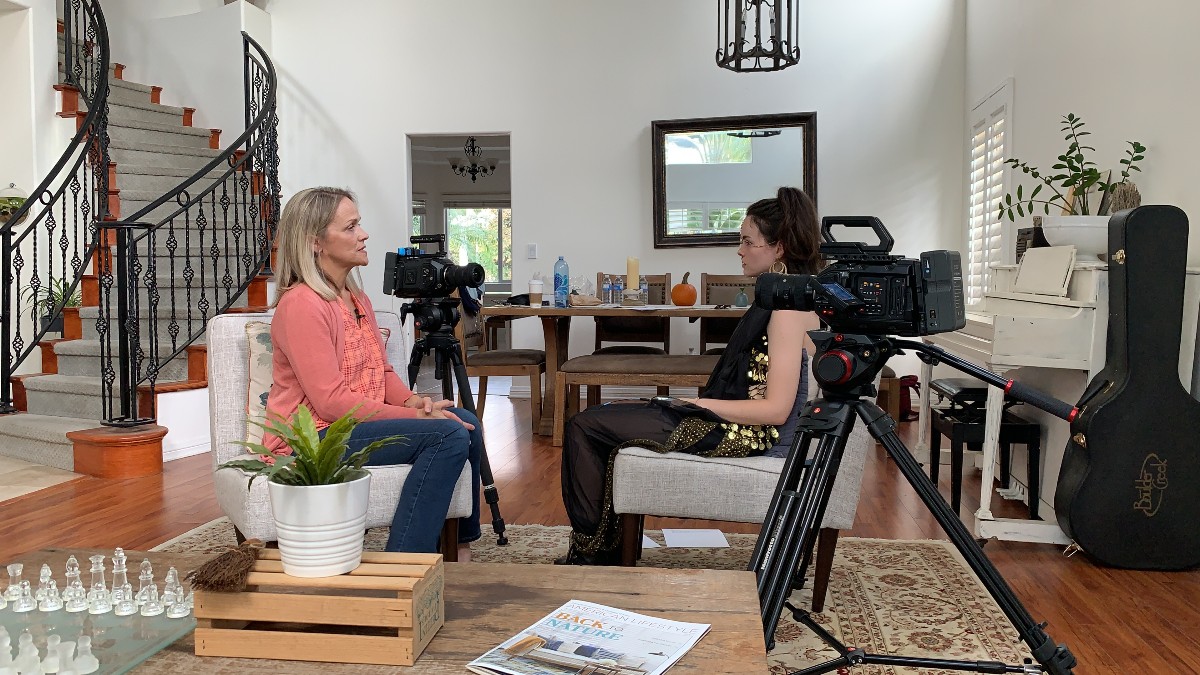
Explain the key challenges of your last film?
ADL: Budget and resources were our key challenges but we just built the film around them. If you’re worried that you might make a bad movie, make a movie where the plot is about people making a bad movie. Can’t go wrong. If you can’t control anything and you’re stealing shots unpermitted on the streets of LA, just build that into the film.
All of your limitations are boons to creativity. They will push you to do something more interesting. The collective unconscious is using your film as a vessel to deliver a tremendous amount of energy. The narrower that outlet, the stronger the pressure and the more unique, exciting, and special your film will most likely be.
What ‘thing/situation’ helps you during production?
ADL: “Flexibility” and a “lack of tension” are key. You need to be able to express your energy on set, never hold it in, even if it goes nowhere. All bad ideas need to be on-limits. There cannot be a cruel judgment on set. There cannot be “power plays” or “ego games”. If someone brings that to set, I assure you, you don’t need them.
Explain a creative choice you took on the set of a recent production?
ADL: Instead of using cinema glass, I felt that using a Sigma Art 18-35mm Photo Lens was key on Clairevoyant. It allowed the film to look like how you remember home-movies look in your mind.
How do you advise directors to find projects?
ADL: Make your own. The director of Heathers just directed an episode of the Veronica Mars reboot and the director of Field of Dreams just directed an episode of The Good Wife spinoff, The Good Fight. I’m saying this to make it clear to you that the ecosystem of Hollywood is completely destroyed.
Once-huge directors are now competing with YOU for TV directing jobs that would’ve made a pre-Duel Spielberg scoff. Plus, the shows suck anyway. So, make your own, and then those shows will reach out to you. But you’ll never work your way up from the mailroom. Mailroom doesn’t even exist anymore either.
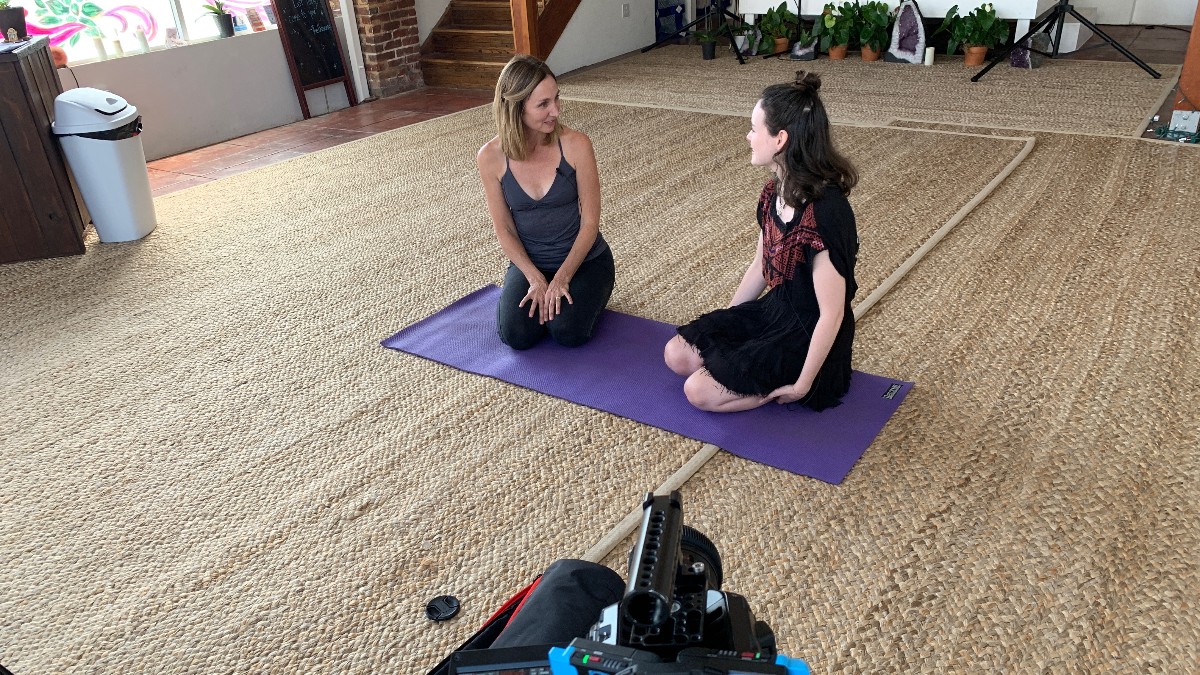
How can filmmakers finance their projects?
ADL: They can’t. And you don’t need money to make a film. If you “can’t make a movie with almost nothing”, you probably aren’t that serious about filmmaking at all. If you’re reading this now and you’re not bullshitting yourself, I implore you to go on “sharegrid” and rent a camera for the weekend or just use your phone and go film something.
Use your limitations as a benefit, build them into the plot, into the aesthetic. Don’t feel the need to pay people, just get your friends or even ask people if they’d act or gaff or produce for a free one or two days a weekend. Eventually, you’ll have a feature. Sure, you won’t make your dream film but we’re not here to dream – we’re here to make this life a reality for ourselves.
Once you do it, I assure you, people will notice and support your next project.
Hell, if you’re really hard-up, put an ad up on Craigslist for collaborators. We did that and met great people. You’re not the only one looking for a family to make films with. They’re out there waiting for you, too.
What do you want from an actor during a production?
ADL: To be energetically clear. To understand that they’re here to finish the film. Nothing else. If they do other things while gallantly finishing the film, cool, no problem. Try to date who you want, make the jokes you want (so long as you don’t fuck up the energy on set) that’s all fine.
But sometimes, actors don’t want to be actors or don’t want to be seen, some actors are terrified of succeeding – make sure to blast through that or recast before it’s too late.
How do you prefer to work with a producer during a production?
ADL: Best seen and not heard.
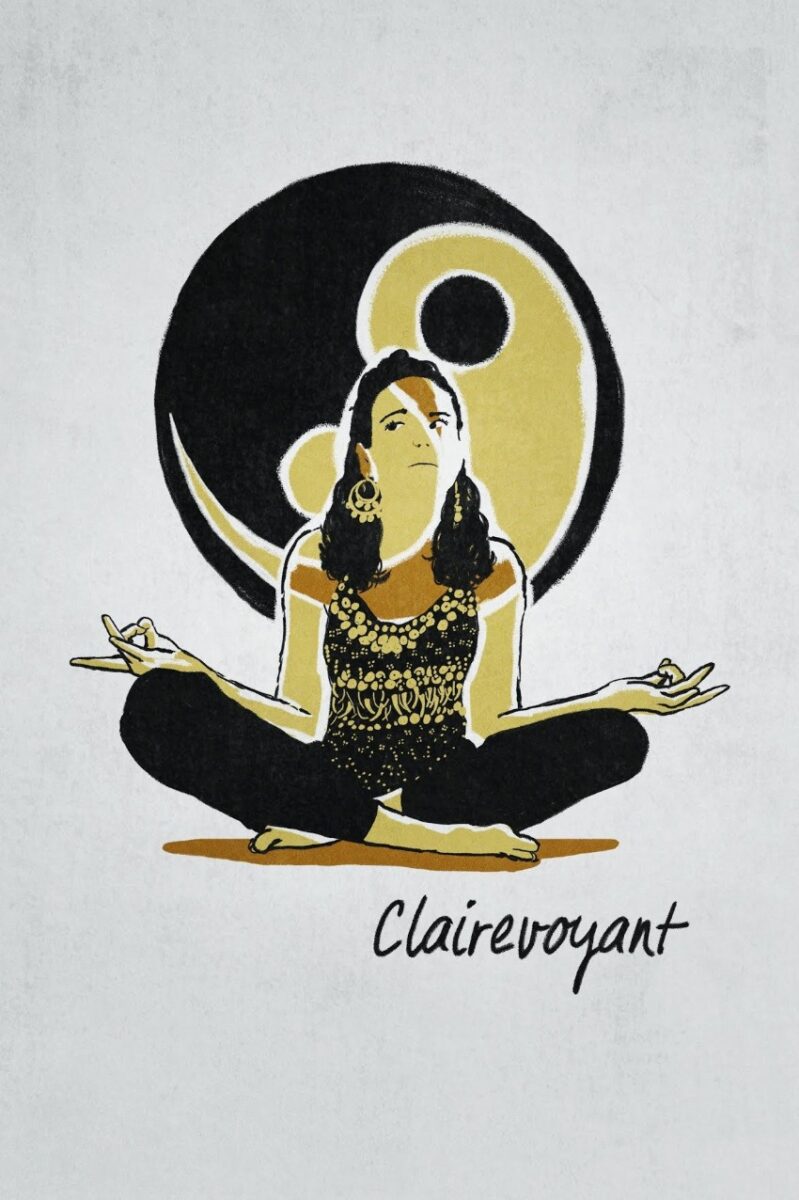
What do you think a director can do to get into the film industry?
ADL: I know I sound like a broken record, but, make your own film. Not a short, by the way. A feature. No one likes shorts or cares about shorts unless they have CGI in them for some reason. Of course, you can prove me wrong on that and I hope you do but I think it’s the same amount of work to make a feature that you can make money off of and get respect from versus a short which can be amazing if you have industry connections but if you’re starting from the bottom, you gotta do something big.
NO ONE GIVES A FUCK ABOUT YOUR SHORT (unless it goes viral) and even then most viral shorts do not equal film careers immediately. Even Jason Headley who made the BRILLIANT ‘It’s not about the Nail’ in 2013 still had to make a feature and win the Special Jury prize at SXSW before Pixar hired him as a writer for Onwards.
I’m not being this harsh to be an asshole, but, misinformation about the validity of shorts as a career path is the #1 killer of the independent filmmaker, in my opinion.
Who is your favorite director?
ADL: Martin Brest.
Why?
ADL: No one cares about people like Martin cares about people. No other director is as sensitive. No other writer either, for that matter.
What advice would you give male/female directors around the world?
ADL: Make your own feature film. It just has to be 70 minutes plus credits. It’s not hard. If you can’t write, learn to. Or just “improv” the film. If you’ve got no actors, learn to act or just pick non-actors and use the best takes.
If you can’t edit, learn to. Don’t get caught self-flagellating by getting taken advantage of by 2nd rate editors who won’t care for your films like you do and you spend weeks or months or in some cases years over their shoulders dictating exactly what you want them to click on the computer while they’re being paid $20/hr.
That’s just you knowingly making it harder on yourself. The caveman paintings at Lascaux have horizontal lines on them to simulate movement when a light flickers near them. That’s animation. That’s a movie. If they could do it 20,000 years ago, so can you.
If you’re serious about filmmaking, you’ll do it and, frankly, if you haven’t made a feature film yet, then you’re not serious about filmmaking. You’re still swaddled in your own resistance. Afraid to be judged qualitatively. Because if you’re still a coulda, a shoulda, a woulda, or a gonna-be then you’ll never be a has-been or a never-will-be.
Tell us what you think of the interview with Arthur De Larroche. What do you think of it? What ideas did you get? Do you have any suggestions? Or did it help you? Let’s have your comments below and/or on Facebook or Instagram! Or join me on Twitter.
Follow Arthur De Larroche on Social Media
IMDb
Facebook
Twitter
Instagra
MORE STORIES FOR YOU
The Key Facts Behind How Jeff Nichols Made The Indie Hit MUD
Jeff Nichols gives himself directorial challenges to master on every project.
In Conversation with Michael Oblowitz Director of Confidential Informant
Confidential Informant stars Mel Gibson, Dominic Purcell, and Kate Bosworth

